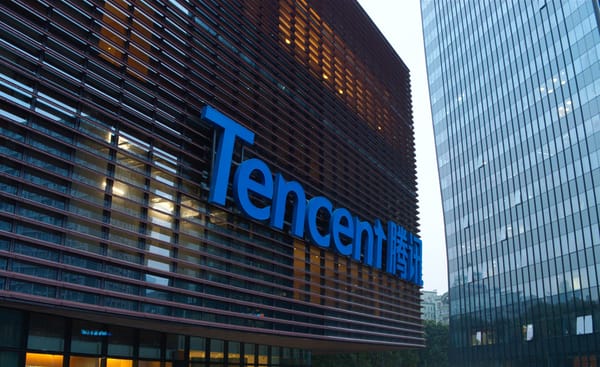Berkley Egenes: The Strategic Value of Partnerships in the Video Game Industry
In a guest article for GamesMarkt, Berkley Egenes, Chief Marketing and Growth Officer at Xsolla, discusses the importance of partnerships and explains why collaborations are powering the next generation of successful titles, studios and platforms.


A guest article by Berkley Egenes, Chief Marketing and Growth Officer at Xsolla
The Strategic Value of Partnerships in the Video Game Industry
In an industry where innovation moves faster than any single studio can keep up with, partnerships have become more than just a nice-to-have; they’re a strategic necessity. The video game landscape today is complex, global, and fiercely competitive. No one can do it alone and expect to thrive. From co-development deals to publishing alliances and tech collaborations, partnerships are powering the next generation of successful titles, studios, and platforms.
Smarter Monetization Through Collaborative Ecosystems
Game monetization has evolved well beyond box sales. Studios have to navigate a maze of revenue models now, including free-to-play, battle passes, premium pricing, live services, digital merchandise, and more. Each model presents different infrastructure requirements, regulatory concerns, and market behaviors.
This is where strategic partnerships shine. Rather than reinventing the wheel, studios can align with platforms, service providers, and policy frameworks that support innovative monetization models from the ground up.
Ukie, the UK’s trade body for the interactive entertainment industry, recently advocated for reforms to the Video Games Expenditure Credit. These changes aim to create a more favorable environment for smaller and mid-sized developers to thrive.
“New monetisation models and creative partnerships are vital to the future of our industry, but they can only deliver their full potential with the right business environment in place. Studios can grow and compete on a global stage when they have the policy framework they need to succeed,” said Nick Poole, CEO at Ukie. “That is why reforming the Video Games Expenditure Credit is so important. It gives developers the confidence to build and innovate here in the UK.”

Web Shops: Reclaiming Control Over Monetization
One of the most important shifts in monetization strategy in recent years is the move toward web shops, which are studio-owned online stores that sell in-game currency, DLCs, cosmetics, or merchandise directly to players. These platforms are increasingly vital in an era where digital storefronts from major players are taking significant revenue cuts and control over pricing, placement, and promotion.
This move toward direct-to-consumer sales has gained momentum alongside the introduction of the European Union’s Digital Markets Act (DMA), which came into effect in 2023. The DMA specifically targets “gatekeepers” such as Apple, Google, and other major ecosystem controllers by requiring them to allow developers to use alternative payment systems, promote external purchase options within their apps, and avoid forced bundling of services that limit monetization flexibility.
In practical terms, this means that developers who are selling into the European market now have legal backing to build and promote their own web shops, even within apps distributed via dominant marketplaces. That’s a game-changer.
By embracing web shops, studios not only avoid hefty platform fees but also gain direct access to player behavior data, purchase histories, and engagement insights, allowing for more personalized promotions, region-specific pricing, and exclusive offers.
These benefits don’t happen in isolation. Strategic partnerships with commerce infrastructure providers like Xsolla are key to navigating payment compliance, fraud prevention, multi-currency pricing, and integration with live game systems. For many studios, doing it alone is impossible - but with the right partner, building and scaling a web shop becomes viable and profitable.
Strategic Independence Through Collaboration
What we’re seeing with web shops and the regulatory shifts behind them is part of a broader evolution in the industry: developers pursuing independence through strategic collaboration. Rather than relying solely on platforms or publishers, studios are building ecosystems around their games. They’re working with partners to solve specific challenges, whether that’s around payments, infrastructure, or localization, while also retaining creative and financial control.
It’s a shift in mindset: from dependency to enablement. The best partnerships aren’t about offloading responsibility; they’re about expanding capacity, reducing risk, and increasing flexibility.
Global Reach Requires Local Intelligence
International growth has never been more important or more complicated. With emerging markets becoming hotspots for player growth, studios need to think globally from day one. But translation is not localization. Monetising effectively in new regions demands cultural understanding, local infrastructure, and tailored experiences.
This is where partnerships offer true strategic value. Regional hubs, publishers, and trade centres help studios avoid common pitfalls and unlock meaningful engagement with new audiences.
MENA is a prime example of a region where local insights and infrastructure can unlock massive upside. But every territory, whether it’s LATAM, Southeast Asia, or Africa, presents unique challenges. Strategic partnerships enable studios to navigate those complexities, whether through payment integration, regulatory compliance, or tailored content.
Creative Collaborations Drive Cultural Relevance
Not all partnerships are about infrastructure or policy. Increasingly, creative collaborations with non-endemic brands that are outside the traditional gaming space are proving vital for engagement, audience expansion, and long-tail monetization.
Think beyond co-marketing. Sports teams, musicians, streaming services, and content creators are now fully embedded in gaming ecosystems. If these partnerships are done right, they don’t just add reach, they add meaning too.
For example, Stevenage FC’s partnership with Xsolla. While at first glance it may seem like a traditional sponsorship, it represents a much more forward-thinking alignment of brand and platform.
“Xsolla has always been an outreach company that looks for partnerships, getting its own message across but helping third parties along the way. And from the moment they started working with us in the 2024-25 season, they saw the potential of Stevenage FC — not just as a football club but as a brand that connects with both fans and gamers worldwide.”
“Their recent decision to extend the partnership all the way to 2028 shows the value of building genuine, strategic relationships that go beyond a logo on a shirt. We’ve already brought in SpecialEffect as our charity partner — another link between football, gaming and doing good — and we’re only just getting started,” said Stevenage FC director Stuart Dinsey.

By collaborating, both parties tap into passionate communities, football fans and gamers, blurring the lines between digital and real-world fandom. This kind of synergy allows for shared merchandising, digital activations, in-game content drops, and community events that serve both emotional engagement and bottom-line monetization.
These are the kinds of creative, agile partnerships that allow studios (and brands) to cut through the noise, stand out, and build lasting loyalty.
No Studio is an Island
From monetization to global expansion to cultural influence, the message is clear: no one can do it alone anymore. The complexity of the modern industry, legal, technical, and creative, requires a new mindset: one where partnerships are not just a means to an end, but a core strategic pillar.
Studios that build the right alliances, whether with policy makers, infrastructure providers, regional experts, or creative collaborators, will move faster, scale smarter, and build games that not only succeed but endure.
Xsolla's own description: Xsolla is a global commerce company with robust tools and services to help developers solve the inherent challenges of the video game industry. From indie to AAA, companies partner with Xsolla to help them fund, distribute, market, and monetize their games. Grounded in the belief in the future of video games, Xsolla is resolute in the mission to bring opportunities together, and continually make new resources available to creators. Headquartered and incorporated in Los Angeles, California, Xsolla operates as the merchant of record and has helped over 1,500+ game developers to reach more players and grow their businesses around the world. With more paths to profits and ways to win, developers have all the things needed to enjoy the game.






